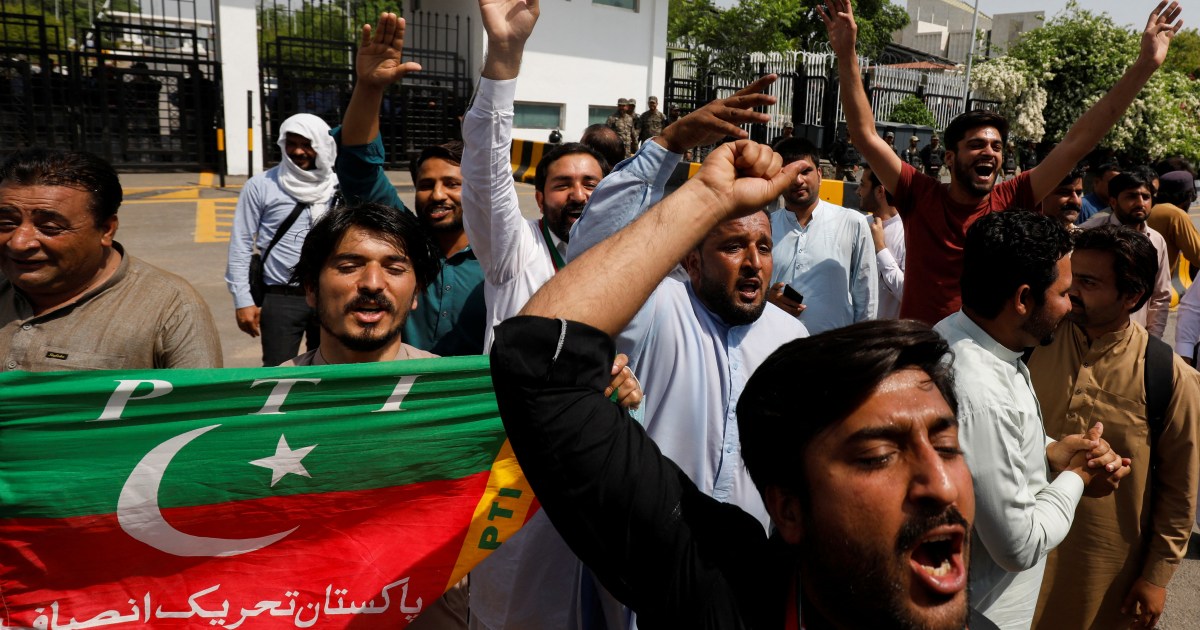Washington
- Pakistan is facing a major political crisis in which Washington plays a prominent role, as President Arif Alvi dissolved parliament and called for new elections after the deputy speaker of parliament blocked a vote of no confidence in Prime Minister Imran Khan.
Pakistan's constitution states that "no foreign power shall be permitted to overthrow an elected government through conspiracy," and Pakistan's Supreme Court agreed to hear opposition petitions to dissolve parliament.
Washington fears that the results of the upcoming elections will return Imran Khan to the position of prime minister after he accused the United States of colluding with his opponents in order to oust him.
Washington denies any role in the political crisis in Pakistan, and reiterated, in the words of Ned Price, a US State Department spokesman, that it has nothing to do with what is happening there. in Islamabad".
Renewed disagreements
And in recent weeks, the Pakistani Prime Minister has repeated the existence of a plot directed from abroad to oust him backed by the United States, based on the latter's objection to his independent foreign policy, in collusion with his political opponents to "compromise the sovereignty of the country".
To support his accusations, Khan spoke of a "diplomatic cable" that he said provided evidence of an American plot.
Khan says that there is a telegram to the Pakistani ambassador in Washington, Asad Majeed Khan, stating that he met with a high-ranking official in the US State Department, during which the official expressed the dissatisfaction of the administration of President Joe Biden with the anti-American trend in the policies of the Imran Khan government.
looking for china
According to Khan, the US official referred in particular to the Prime Minister's decision to visit Moscow on the eve of the Russian military operation in Ukraine, and the development of relations between Beijing and Islamabad.
Khan stated that the US official spoke of "consequences" if Khan continued to rule.
Since the end of the US military presence in Afghanistan, which lasted 20 years, the relations of the two countries have known a new tension, which some experts in Washington considered an additional factor that contributed to Pakistan's strategic shift towards China and Russia.
China has doubled its investments in Pakistan, Islamabad has become a major part of China's Belt and Road Initiative, and the China-Pakistan Economic Corridor has been established, which includes Chinese investments in Pakistan worth more than $30 billion so far.
In an interview with Al Jazeera Net, Marvin Weinbaum, director of the Pakistan and Afghanistan Program at the Middle East Institute, noted that "it is no secret that US officials and informed observers have been annoyed by Imran Khan's repeated, undiplomatic and deeply hostile rhetoric. Washington was also angered by his recent trip to Moscow on the eve of the conflict." Ukrainian".
"Of course, Washington's feelings are conveyed to the Islamabad government through official diplomatic channels, and these Pakistan policies can be expected to have significant consequences for US-Pakistan relations. It was not acceptable for a Pakistani prime minister to use a telegram issued by an ambassador in Washington informing For a conversation with a high-ranking diplomat to accuse the US government of conspiring with his political opponents, you need hard evidence, and it is not enough to interpret the US official's words as containing a veiled threat.
waiting and waiting
At a time when early elections seem almost inevitable, some American observers believe that Khan's chances of continuing to rule are very high, due to the weakness and fragmentation of the opposition political parties, as no leader possesses the oratorical skills and political acumen that Khan has.
If Imran Khan gains power again, he is expected to push his political agenda and punish his critics, while continuing to direct his foreign policy toward Moscow and Beijing.
In an interview with Al-Jazeera Net, Hussain Haqqani, the former ambassador to Pakistan in Washington and an expert at the Hudson Institute in the American capital, indicated that "the United States is simply monitoring the situation in Pakistan, and it seems that it has decided that if the Prime Minister of a country makes false accusations against the United States without providing any evidence It is not worth wasting time and energy to deal with it until things are settled inside Pakistan."
He added that "the Pentagon and the CIA wish to maintain relations with their Pakistani counterparts, but this relationship cannot progress without a positive political relationship between the US administration and the Pakistani government."
In the same context, and regarding the relations of the Pakistani army with Washington, Weinbaum said that "American relations with the Pakistani army are not in dispute, as the high command of the Pakistani army announced publicly only a few days ago that it highly values its relationship with the United States and effectively distanced itself from the prime minister's accusations. Even with There is resentment against the United States within the ranks of the military, if for no other reason, the military is linked to the United States by the fact that it operates mainly using American military equipment that Washington has provided to Islamabad over recent decades.”
A number of Pakistan experts in Washington do not hesitate to point out that if Khan loses the elections, he may not accept the results. In this case, Pakistan may face a period of political turmoil that traditionally encourages the army to intervene to stop what he sees as "political chaos."

